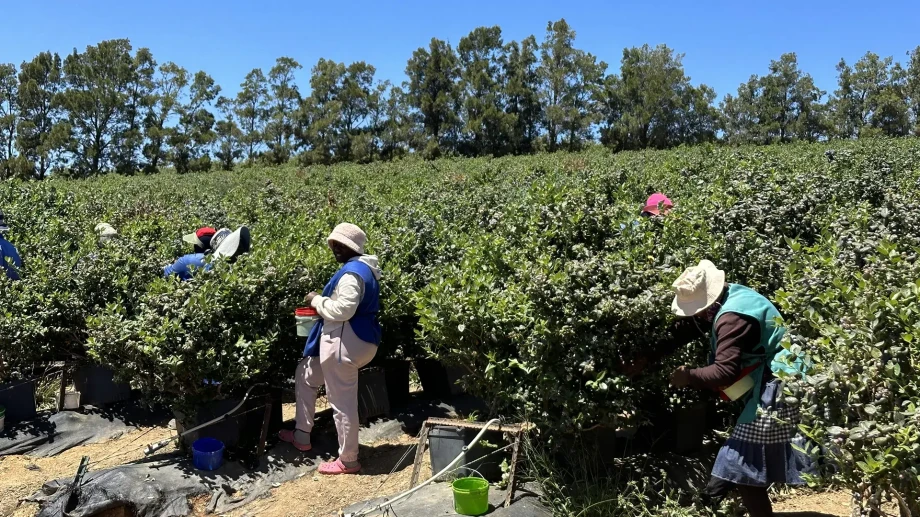This is an abstract from the 2024 IBO Report. Click here to download the full report
After a few challenging seasons due to port issues, South Africa’s blueberry industry caught a break in 2023 with lower supply from Peru, a major competitor whose production had soared since the South African blueberry boom started over a decade ago.
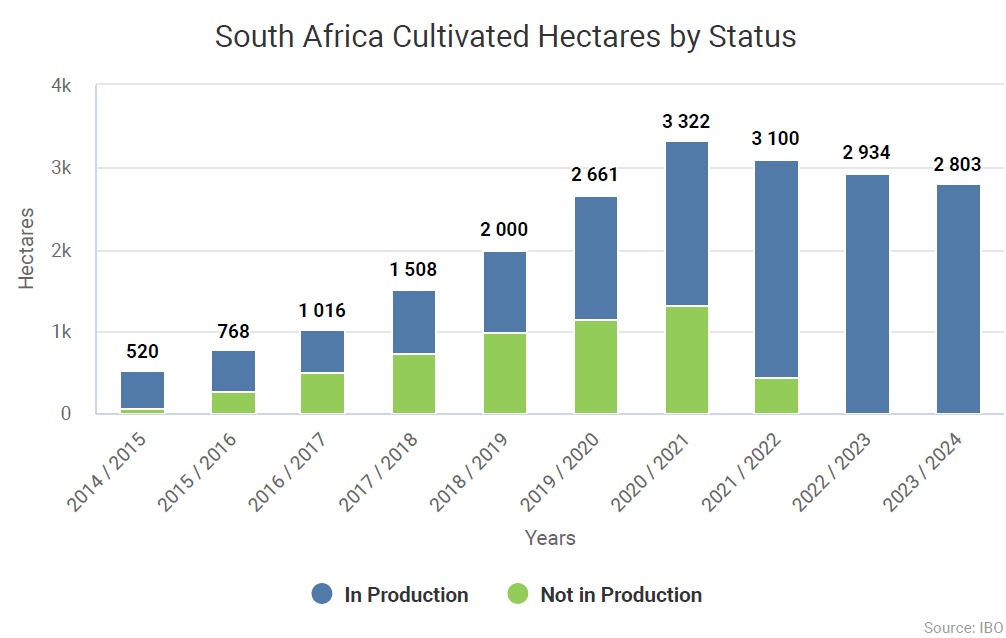
Most of South Africa’s blueberry acres are in the Western Cape, where harvest peaks in October-November, coinciding with Peru’s busiest period.
Market demand and transport
In response to high market demand, South Africa’s use of air transport rose significantly in 2023, with air shipments jumping from 20% to 45% as prices made this option more viable. By late season, most exports were by air.
It's uncertain if this trend will continue, as it was driven not only by demand but also by port delays caused by strikes and inefficiencies in Transnet, the state logistics company managing the ports. Industry hopes for improvement after recent management changes at Transnet.
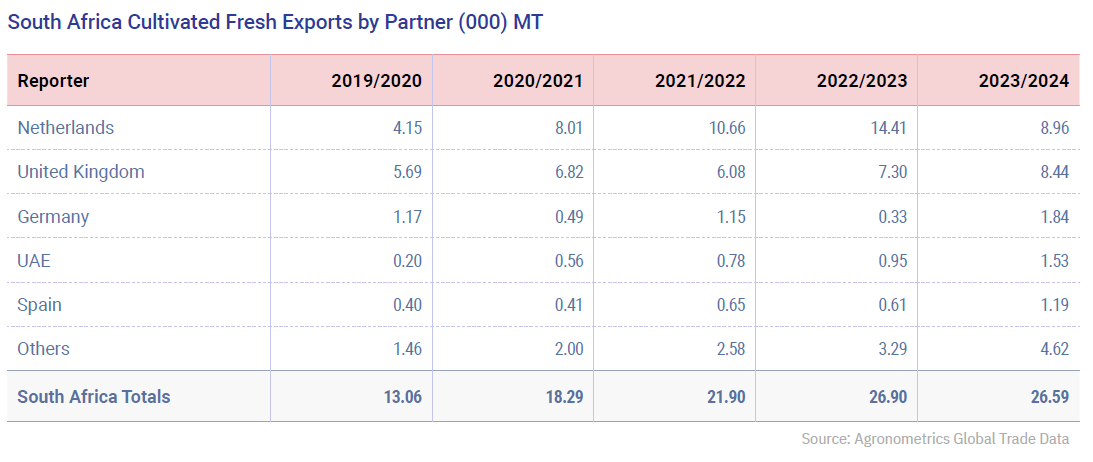
Climate impacts on production
Despite efforts to meet demand, the industry faced its own climate issues, which delayed harvests and cut export volumes by 12.5% in 2023, though the financial season was overall better.
Extended cold weather slowed fruit ripening, while wet conditions in Western Cape impacted early-blooming varieties, although the fruit itself remained largely unaffected.
Expansion into new markets
South Africa made significant progress in new markets, with exports up 50% to the Middle East and 25% to the Far East. The EU saw a volume drop of 33%, while shipments to the UK rose by 18%.
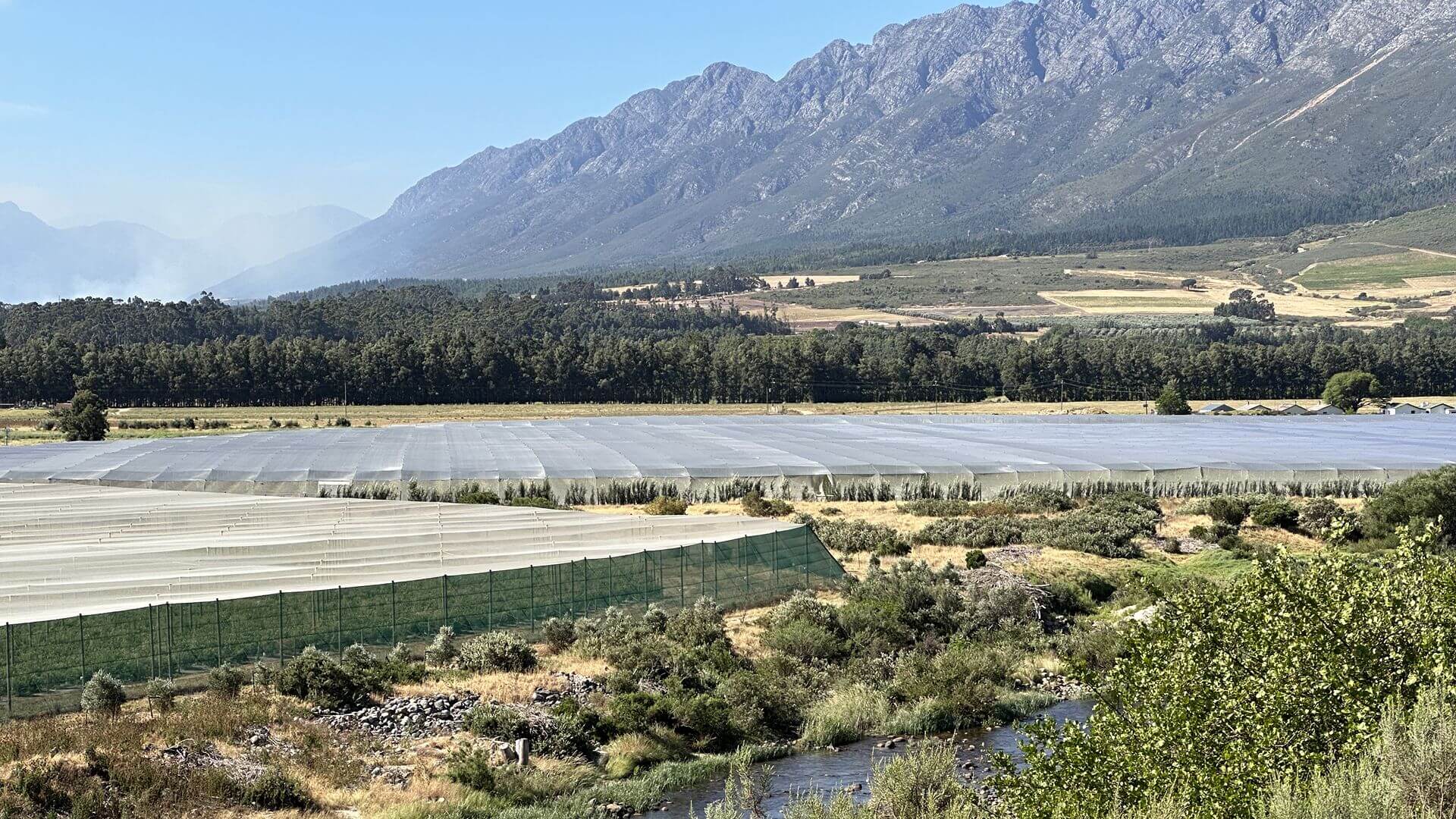
By late 2023, South African blueberries gained market access to Canada, with trial shipments expected in 2024, and negotiations with India and China continue for expanded market entry.
Focus on premium varieties
The South African industry focuses on premium varieties and high-quality retail buyers. Major breeding programs support a technically skilled industry, with around 12% of blueberries grown in tunnels and many on substrates.
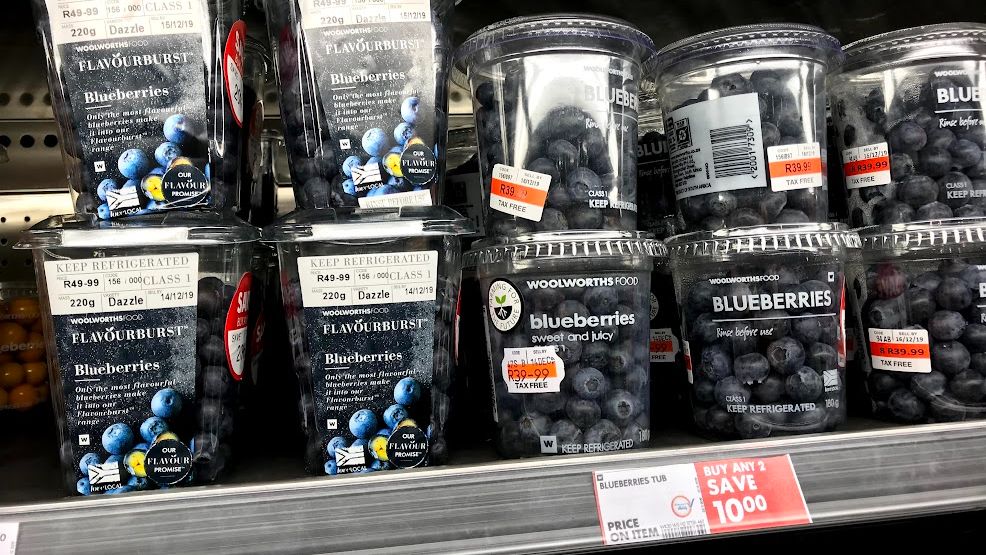
Australian breeding programs lead in genetics, with significant contributions from the U.S., Spain, and other countries, indicating a bright future for South Africa’s blueberry growth.
Read more
Continue reading more abstracts from the 2024 IBO Report or download the full report:





